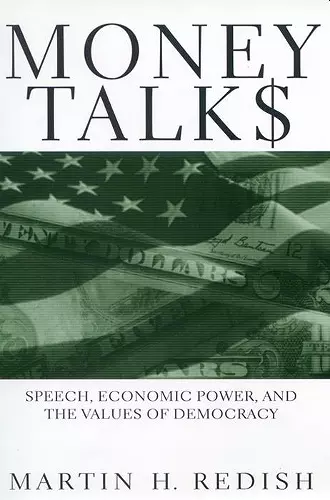Money Talks
Speech, Economic Power, and the Values of Democracy
Format:Hardback
Publisher:New York University Press
Published:1st Aug '01
Currently unavailable, and unfortunately no date known when it will be back

Many have argued that soft money and special interests are destroying the American electoral system. And yet the clarion call for campaign finance reform only touches on the more general belief that money and economic power have a disastrous impact on both free expression and American democracy. The nation's primary sources of communication, the argument goes, are increasingly controlled by vast corporate empires whose primary, or even exclusive motive is the maximization of profit. And these conglomerates should simply not be granted the same constitutional protection as, say, an individual protester.
And yet neither the expenditure of money for expressive purposes nor an underlying motive of profit maximization detracts from the values fostered by such activity, claims Martin H. Redish. In fact, given the modern economic realities that dictate that effective expression virtually requires the expenditure of capital, any restriction of such capital for expressive purposes will necessarily reduce the sum total of available expression. Further, Redish here illustrates, the underlying motive of those who wish to restrict corporate expression is disagreement with the nature of the views they express.
Confronting head-on one of the sacred cows of American reformist politics, Martin H. Redish here once again lives up to his reputation as one of America's most original and counterintuitive legal minds.
A thoughtful, provocative, and important work from one of the nation's foremost First Amendment scholars, covering some of the most significant debates in free speech law today. -- Professor Eugene Volokh,UCLA Law School
Martin Redish, one of our foremost first amendment scholars, examines one of the most important issues of our times: May the government intervene to "improve" the marketplace of ideas by restricting the speech of the economically powerful and perhaps subsidizing the speech of the less powerful? Redish concludes that such intervention is not in service of, but more often opposed to, core first amendment values. Anyone interested in the constitutional and policy implications of campaign finance reform and other proposals to "equalize" speech must read this book. -- Larry Alexander,Warren Distinguished Professor of Law, University of San Diego
ISBN: 9780814775387
Dimensions: unknown
Weight: 567g
334 pages